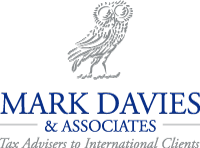Non-doms can choose to pay tax either on all income and gains wherever they arise (known as the worldwide basis); or on the alternative basis (where UK sources of income are taxed as they arise and foreign income and gains are taxed but only to the extent that they are remitted to the UK). This alternative option is known as the remittance basis.
If non-doms claim the remittance basis they lose their tax free allowances for income and capital gains tax and pay a higher rate on remitted dividends but there are no other charges for the first seven years. Once the non-dom has been UK tax resident in 7 out of the last 9 tax years, the annual remittance basis charge or “RBC” of £30,000 becomes payable. Moreover, once tax resident in 12 out of 14 tax years the charge rises to £60,000. Since 6 April 2017 non-doms who have been UK tax resident for more than 15 out of the preceding 20 tax years are deemed UK domiciled and can no longer claim the remittance basis. There are complex rules used to identify what constitutes a remittance and on determining what has been remitted.
Mark Davies & Associates advise on the merit of an individual client paying the charge and being exempted from tax on foreign income and gains or paying tax on the worldwide basis, dependent on their levels of overseas income and gains and how much time is spent abroad. We also offer compliance services to submit UK Tax returns on behalf of clients wishing to claim the remittance basis. The claim must be made annually even if such a claim results in no UK tax being payable. With careful planning foreign income and gains can be structured to grow offshore, tax free.
Contact us for more information here.

